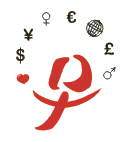Welcome to Women in Switzerland
W-T-W invites the women of Switzerland to join us. Post articles of local interest, and of interest in international finance. We focus on financial literacy and fighting corruption.
Finance Editor: Simone Nadelhofer
Simone Nadelhofer holds a PhD., summa cum laude, from the University of Lucerne, for which she was awarded the Professor Walter Hug prize and the Universitätsverein Lucerne prize in 2008. She also holds a Master of Advanced Studies in Economic Crime Investigation from the Lucerne Business School (MAS ECI, 2007). She trained with Homburger in Zurich (2001-2002) and graduated from the University of Freiburg in 1999 (lic. iur., bilingual) CV
Swiss subsidiary of Alstom fined for corruption of foreign officials
On 22 November 2011 the Office of the Attorney General of Switzerland (the “OAG”) issued a summary punishment order against Alstom Network Schweiz AG (“Alstom” or the “Company”) for not having taken all necessary and adequate compliance measures to prevent bribery of foreign officials in Latvia, Tunisia and Malaysia.
The Company, a Swiss subsidiary of French Alstom SA, was fined 2.5m Swiss francs (USD 2.7m) and ordered to pay 36.4m Swiss francs (USD 39.4m) in compensation for illegal profits derived from bribery, which is an amount equivalent to the operational profit (EBIT) derived from the affected projects.
The OAG came to the conclusion that consultants engaged by Alstom in Latvia, Tunisia and Malaysia had paid a significant proportion of their success fees to foreign officials with the objective of influencing them to buy Alstom power plants and services.
Alstom was fined under Article 102 section 2 of the Swiss Criminal Code (a provision which is highly similar to the UK Bribery Act’s corporate offense, i.e., the ‘Failure of commercial organizations to prevent bribery’) for its failure to take all necessary and adequate measures to prevent the bribery. The OAG noted that the use of agents on the basis of success fee remuneration schemes in countries with a high level of corruption (according to the corruption index of Transparency International) entails a considerable risk of criminal prosecution for companies.
For further information, see the article published on the following link:
Access to bank files based on Swiss Data protection law
In its decision 4A_688/2011 of 17 April 2012, the Swiss Federal Supreme Court (FSC) confirmed the findings of the Zurich Obergericht that the client of a bank is entitled to request access to the bank’s internal notes (in particular regarding the client’s profile and investment objectives, to the exclusion of the notes established by the customer-adviser for his/her personal use) on the basis of Article 8 Data Protection Act (DPA). The decision was published on the FSC’ website:
Disclosure of information on Swiss bank accounts
In the spring of 2009 the names and account information of 285 US citizens holding undeclared accounts with UBS in Switzerland were handed over to the US tax authorities. At the same time, judicial proceedings were filed in Germany and France against holders of Swiss accounts based on tax data stolen by former employees of Swiss banks. These events added to the growing international pressure, in particular from the OECD, on Switzerland to soften its standards on the exchange of information in tax matters. The contribution on the following link aims at providing an overview of the main changes shaping Switzerland’s new standards.
Have a nice day,
Simone
More news and information also in German available
W-T-W invites you to participate.
Please contact us.

